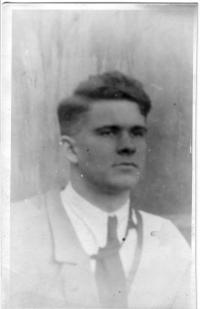I followed the ideals of Sokol and Masaryk
Věroslav Dušek is from Poruba, where he was born on May 29th 1922. His father was one of the founders of the Sokol movement in the Ostrava region before WWI. Věroslav was a member of Sokol from only four years old. He could not complete his studies at grammar school in Orlová, because in September 1939 he was arrested by the Gestapo for intending to join the French foreign army. He was imprisoned in Brno and Vienna and then deported to the Dachau concentration camp. During the following five years he was detained in the German concentration camps of Neuengamme, Sachsenhausen, Natzweiler and Lichterfelde. When Germany was liberated, he was in Dachau. Věroslav Dušek died on July 29, 2020.

